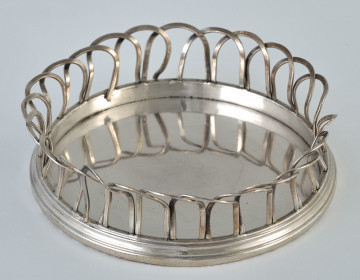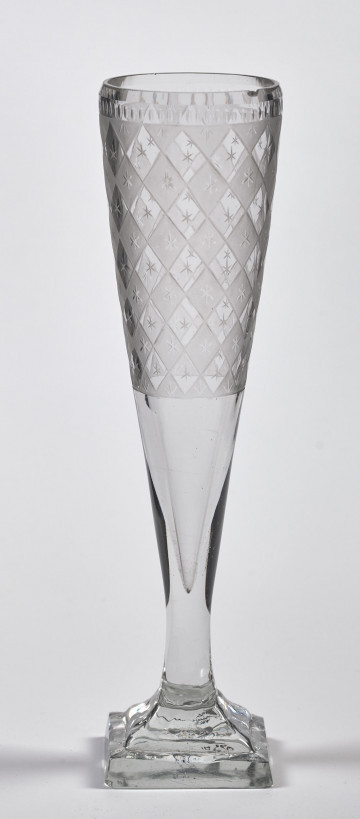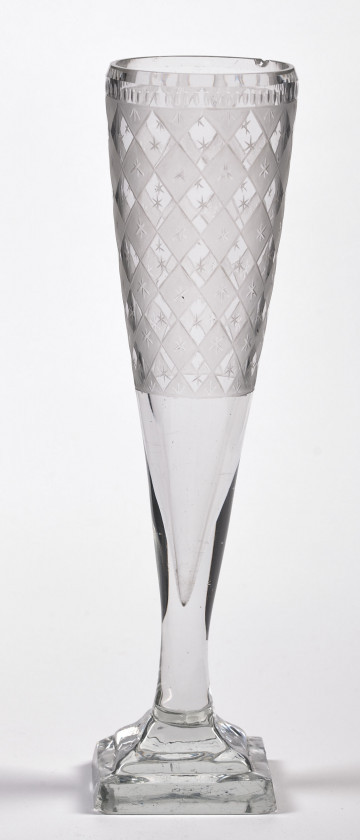
Basket
19th (?) century
Castle Museum in Łańcut
Part of the collection: History of the city and the region
Tea can The custom of drinking tea was brought to Poland by Russians in the time of the Kingdom of Poland. Before this aromatic drink became an obligatory element of social gatherings, for a time, it used to be considered a medical product to be purchased at pharmacies. At burgher houses, tea was usually drunk late in the afternoon or in the evening, with long conversations accompanying it. Until the times of World War I it was usually brewed in a samovar, and later in a pot heated on the cooker. The best tea originated from China, where it started to be drunk in the year 50 B. C. Sadly, tea imported from China was expensive, and, hence, frequently counterfeited through the addition of leaves of various trees, often coloured with graphite. In order to simplify access to tea, companies were established that handled its distribution. One of these was the Warsaw joint-stock company E.W.I.G., which, in time, joined the Association of Coffee and Tea Importers. The name of this company is found on the described can among colourful oriental motifs. Interestingly enough, a surviving issue of the official journal of the county of Siedlce from 1919 includes the following advertisement: „Demand packaged tea from „E.W.I.G. The First Warsaw Import Society” at all larger and smaller colonial stores; it is famous for its aroma and taste. „E.W.I.G.” tea is generally known for its advantages, quality and cheapness, as the contents correspond to the et weight given on each package. The company „E.W.I.G.” is responsible for the full weight”. Such exquisite tea could not be missing from the homes of Łańcut burghers. Joanna Kluz
Author / creator
Dimensions
height: 16 cm, width: 15.3 cm
Object type
History of the city and the region
Technique
painting
Material
sheet metal
Creation time / dating
Creation / finding place
Owner
Castle Museum in Łańcut
Identification number
Location / status

19th (?) century
Castle Museum in Łańcut

1800
Castle Museum in Łańcut

1800
Castle Museum in Łańcut
DISCOVER this TOPIC
National Museum in Lublin
DISCOVER this PATH
Educational path